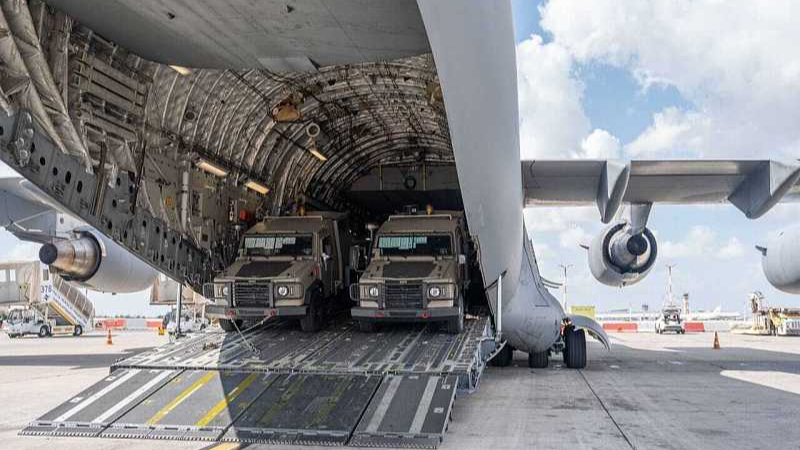The core question remains: why should American taxpayers subsidize the standard of living and security of another nation and that too Israel, which is indifferent to its advises
While journeying from the bustling urbanity of Tel Aviv to the frontier community of Sderot in Israel, one notices the lush greenery—an anomaly in the arid landscape. This verdant facade, however, comes at a price. To maintain such an environment and match the public services of wealthier European capitals, substantial resources are funnelled into preserving a high standard of living, conspicuously higher than that of its less affluent neighbours and Palestinians, who live just a wall across.
The US has long been a financial backbone for Israel, contributing approximately 3% of the latter’s national budget and about 1% of its GDP to help the Jewish country to match European life standards in the Middle East.
This support now faces increasing scrutiny due to its impact on American taxpayers and the ethical considerations it raises.
Critics question the justification of such aid given Israel’s economic and military prowess. According to reports by USAID and the Congressional Research Service, the US has provided Israel with an unprecedented $297 billion since 1946. In stark contrast, Egypt, the second-largest recipient of US aid, has received $167 billion, while Palestine has received just over $11 billion since 1950. The aid to Pakistan accounts for $67 billion between 1951 and 2011.
The financial assistance is not just substantial; it is strategic. Approximately 20% of Israel’s defence budget and almost its entire procurement budget are funded through American aid. This includes sophisticated technologies and weapons systems like the Iron Dome and Arrow missile defence systems, which are part of the nearly $4 billion annual military aid package the US has committed through 2028.
The strategic advantages for Israel extend beyond financial grants, incorporating American technological support such as radar systems linked to the US global satellite network, significantly enhancing Israel’s defence capabilities against long-range threats.
Yet, the discourse around US aid to Israel is fraught with controversy. Not only are the economic burdens on American citizens a concern, but ethical issues also loom large, particularly regarding the conduct of Israeli military operations in the Gaza Strip. These operations have led to high civilian casualties and a worsening humanitarian crisis, prompting international and national outcry.
Critics like Steven A. Cook from the Council on Foreign Relations and former US ambassador Martin Indyk argue that the US might need to recalibrate its aid to Israel, suggesting that less dependency could foster a healthier bilateral relationship. From 1971 to 2007, the US provided significant economic aid to Israel. Under a current 10-year agreement, nearly $4 billion is pledged annually until 2028, with conditions that the funds be spent on US military equipment and services, although Israel has been permitted to use some of this aid to buy from Israeli defence companies.
Moreover, US laws stipulate that Congress must be notified of major arms deals, with a review period allowed for potential blockage of sales, although no sale to Israel has ever been obstructed under these regulations. Despite this, there are claims that the US has not adequately enforced the Leahy Law, which prohibits security assistance to foreign entities involved in severe human rights violations, against Israel.
The case of a 13-year-old Palestinian boy allegedly raped by Israeli forces highlights the severe criticism Israel faces, further complicated by the reported retaliatory actions against the charity that brought the incident to light. Such incidents underscore the contentious nature of US support for Israel, igniting debates about the ethical implications and the real costs of this aid.
US-Israel relations are now at a crossroads, influenced by political dynamics, regional stability, and international diplomacy. The ongoing debates reflect broader questions about America’s role on the global stage and whether its support fosters stability or fuels discord.
As the US continues to assess its foreign aid strategies, the core question remains: why should American taxpayers subsidize the standard of living and security of another nation, especially one capable of self-sustenance? This pivotal moment in US-Israel relations could potentially redefine future diplomatic engagements and the principles guiding them.
###




